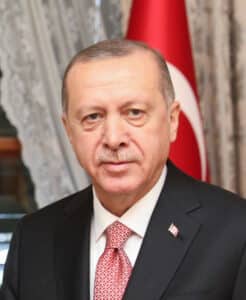Photo: Wikimedia Commons
On the 9th of August, the Interior Ministry of the United Kingdom announced that it has entered into a deal with Türkiye to further work together to combat irregular migration. Moreover, this autumn, London is hosting a UK-Türkiye migration dialogue meeting. The proposed cooperation might reveal itself to be ineffective and problematic, just like similar past deals. But, will its potential benefits nonetheless outweigh the negative consequences that might follow?
What does the deal entail?
The agreements made between the UK and Türkiye are meant to bring down the level of irregular migration coming to the UK from or through Türkiye. They include a UK-supported operational ‘centre of excellence’ to be created in Türkiye by the Turkish National Police, with the goal of enriching “existing expertise in both countries with respect to activities aimed at disrupting criminal networks organising illegal journeys.” Additionally, there will be an expansion of British officers in Türkiye to “disrupt and dismantle” those who run irregular migration routes.
British cooperation with Turkish authorities
This is not the first time the UK has cooperated with Turkish authorities to tackle migration. In June 2023, an investigation by the Guardian revealed that, the year before, the UK had spent more than three million pounds, which is equivalent to three and a half million euros, on funding Turkish border forces to prevent migrants from entering the UK. This resulted in much criticism. For instance, Mary Atiknson, manager at the Joint Council for the Welfare of Immigrants, said that the British government has “shown that it will break international law to prevent people from exercising the fundamental human right to seek safety,” and that it is “covertly funding others to do its dirty work, while at the same time ramping up its xenophobic rhetoric against the few that do finally make it here.”
Another point of criticism that applies to Britain’s previous and upcoming cooperation with Turkish authorities is related to the violence which Türkiye uses against immigrants, in instances such as deportations and pushbacks. For example, in 2022, videos circulated of extreme force and violence exercised by Turkish border forces against Afghan migrants. According to the Guardian, this violence includes “the authorities firing live bullet rounds as people flee, including at the feet of children; beatings using rifle butts; robberies; humiliation tactics and pushing people back to the other side of the border.”
(In)effectively stopping irregular migration
Given the aforementioned reasons, British cooperation and financing related to the controversial Turkish security forces may be considered immoral and problematic. But even if it wasn’t, the deal would still be inviable, as irregular migration is unlikely to be halted through measures like these. The reason for this is that people who are suffering from unsafe, traumatising, and threatening circumstances in their native country, have extremely high incentives for migrating, using whatever methods available. This also applies to the migrants who want to leave Türkiye for the UK. They are mostly from unstable countries: the majority is from Afghanistan, which is plagued by inhumane and unsafe conditions due to the Taliban regime and violent conflict. Another large part is from Türkiye, which is troubled by natural disasters, and a threatening political and economic environment. It is therefore highly questionable how effective the UK-Türkiye deal can really be in practice, as the migration it tries to undermine is largely motivated by a strong motivation to seek safety. Furthermore, some argue that actively forcing migrants to halt their journeys, without providing a serious alternative, seriously harms people’s deserved right to migration, for instance when they are fleeing from an earthquake or from political persecution.
In other words, it is necessary to handle migration in a more sustainable and humane way than the UK-Türkiye deal supposes. As long as natural disasters, political violence, and general unsafety are prevalent in countries such as Türkiye and Afghanistan, people will inevitably migrate. Measures such as the UK-Türkiye deal do little to properly address this. Instead, it puts migrants in threatening situations in which they may have no way to go.
It is true that irregular migration is often associated with inhumane situations and criminality. So therefore, instead of solely trying to undermine irregular migration, political efforts should be aimed at providing migrants with viable alternatives. Hence, time and money should be spent on both providing safe and qualitative migration, and working together to improve the unsafe conditions which make people need to migrate.
Written by Luna Sent



